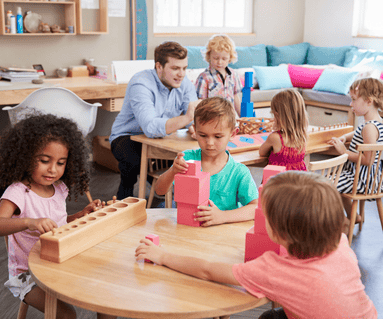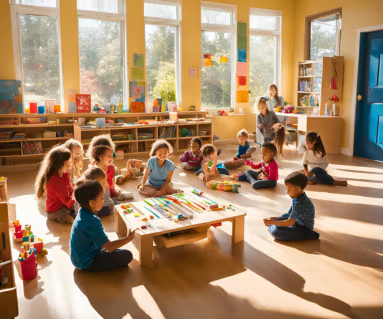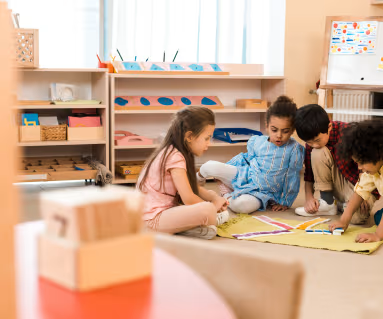- +1 825 559 2337
- info@brainybees.ca
About
About
About Brainy Bees Daycare
At Brainy Bees Montessori, we foster growth, curiosity, and independence in a nurturing, hands-on environment. Our program—spanning Infant, Toddler, and Preschool —supports the holistic development of every child, guiding them toward becoming confident, capable learners ready to explore the world around them.

Our Philosophy
The Montessori philosophy, founded by Dr. Maria Montessori, is a unique child-centered approach that encourages children to explore, discover, and grow through hands-on learning. Based on years of research, the Montessori Method emphasizes nurturing the whole child—physically, socially, emotionally, and cognitively.
Our Vision
We aim to create a lasting impact in our community by supporting families and ensuring that every child’s early years are filled with purpose, discovery, and growth. At Brainy Bees, we are proud to be a place where lifelong learning is inspired.


Our Programs
At Brainy Bees Montessori, we offer authentic Montessori-inspired programs designed to support the developmental needs of infants, toddlers, and preschoolers. Our experienced educators create a thoughtfully prepared environment where children engage in self-directed learning, hands-on activities, and collaborative exploration, fostering curiosity, critical thinking, and creativity. Through sensory exploration and work within the prepared environment, we empower children to discover the world at their own pace, promoting independence, problem-solving, and a deep love of learning.

- +1 825 559 2337
- info@brainybees.ca
- #202 4909 49 St Red Deer, AB T4N 1V1, Canada
About Us
Choosing Brainy Bees Montessori means choosing an environment that celebrates each child’s individuality and respects their natural development stages.